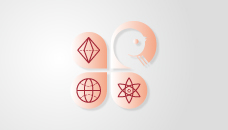Yunmian Xiao, Changhui Song, Zibin Liu, Linqing Liu, Hanxiang Zhou, Di Wang, Yongqiang Yang. In-situ additive manufacturing of high strength yet ductility titanium composites with gradient layered structure using N2[J]. International Journal of Extreme Manufacturing, 2024, 6(3): 35001
Search by keywords or author
- International Journal of Extreme Manufacturing
- Vol. 6, Issue 3, 35001 (2024)
Abstract

Set citation alerts for the article
Please enter your email address



